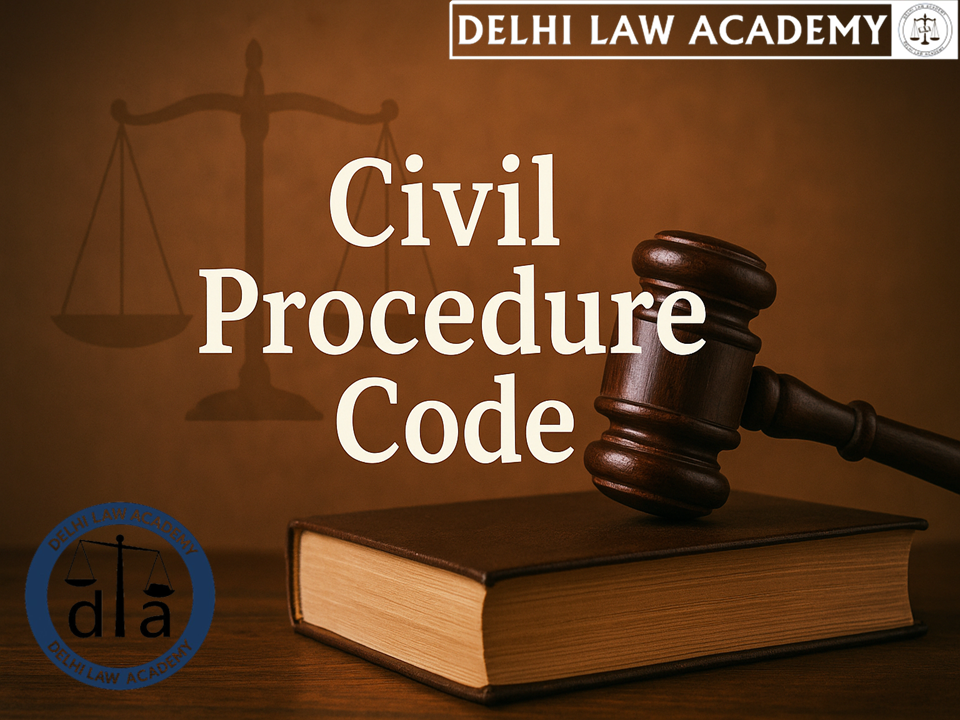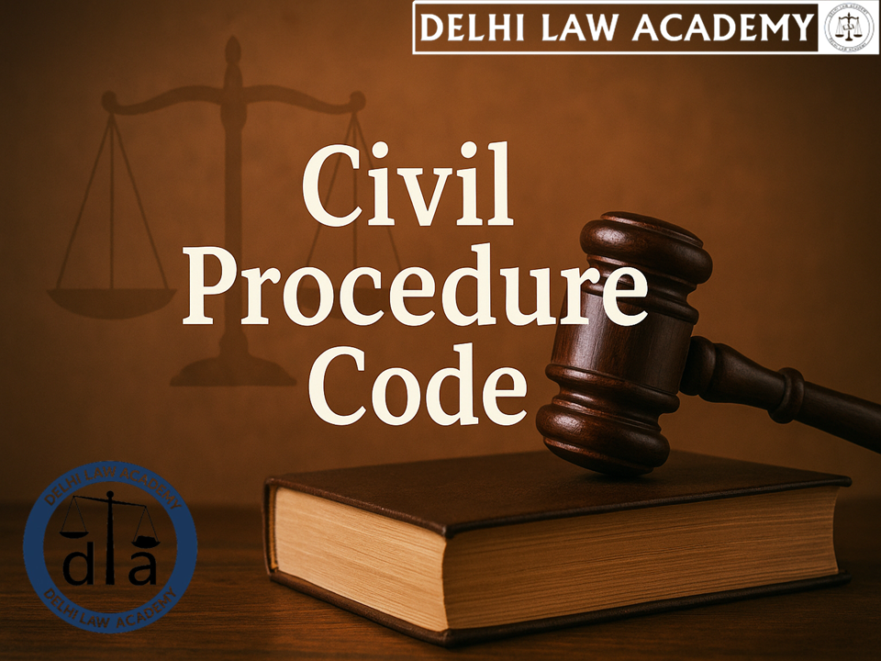
⚖️ CIVIL PROCEDURE CODE: SETTLEMENT OF DISPUTES OUTSIDE COURT
- Alternative Dispute Resolution processes
- Section 89 of CPC
Supreme Court Judgments considered in this post in the matter of Alternative Dispute Resolution processes:
- B.P.M. Sevamandir v. A.M. Kutty Hassan [2009 SC]
- Afcons Infrastructure Ltd v. Cherian Varkey Construction
- Salem Advocates Bar Association v. Union of India [2005 SC]
To help aspirants of RJS, DJS, PCS (J) and every other Judicial Service exam DELHI LAW ACADEMY JAIPUR has launched a series of study material modules on all important aspects of this vital part of their syllabus:
📘 Case study: B.P.M. Sevamandir v. A.M. Kutty Hassan [2009 SC]
Facts
- A pending second appeal was referred to the Lok Adalat organized by the Kerala High Court Legal Services Committee.
The failure report
- The Lok Adalat consisting of two retired Judges of High Court sent the following failure report:
- “We have discussed the matter with the counsel and their parties and considering the nature of demand made by the appellants, there is no chance of settlement.”
- The second appeal was thereafter listed for the final hearing before a Single Judge.
- The appellants’ counsel submitted that …. the matter may be adjourned to the next day.
High Court Order
“I see no reason why any further adjournment is to be granted… when the parties are wilfully abstaining from arriving at any settlement despite an award passed at the Adalath on agreement. In the result, I dismiss this appeal for default…”
Supreme Court
- When a case is referred to the Lok Adalat for settlement, two courses are open to it:
- (a) If a settlement is arrived at between the parties: make an award incorporating such settlement, which when signed by the parties and countersigned by members of Lok Adalat has the force of a decree.
- (b) If there is no settlement: return the record with a failure report to the court.
- There can be no hybrid order containing directions when there is no settlement.
- Members of Lok Adalats are only statutory conciliators, not judges.
- Pressurizing parties to settle brings disrepute to ADR.
- Courts must encourage ADR but not force it.
Examples of No Reference
- Dispute over unlawful encroachment cannot be forced into a Lok Adalat settlement.
- Fraud or forgery allegations cannot be settled via ADR.
Conduct of a Party
- Conduct before Lok Adalat is irrelevant to judicial decision.
- Courts must not be biased against litigants refusing settlement.
- Settlement must be voluntary.
- Section 20(5) of the Act ensures the right to return to court if no settlement occurs.
- Any negotiation before Lok Adalat cannot be used against a party later.
Decision
When a counsel seeks accommodation due to illness, the appeal cannot be dismissed on the ground that his client was unreasonable before Lok Adalat.
⚖️ For Arbitration, There Has to Be an Agreement
- If there was a pre-existing arbitration agreement, the matter would already have gone to arbitration under Section 8 or 11 of the Arbitration and Conciliation Act.
- If there was no pre-existing agreement, parties can still agree for arbitration under Section 89 CPC.
- Once signed, such agreement sends the matter permanently outside the court.
- Without consent, courts cannot compel arbitration under Section 89 CPC.
Authority: Afcons Infrastructure Ltd v. Cherian Varkey Construction
📜 Stage of Reference
- After pleadings are complete and before framing issues, the court should explore ADR under Section 89 and Order 10 Rule 1A.
- If missed, Section 89 can still be used later but not after evidence begins.
- In Family Courts, ideal stage for mediation is after service of respondent and before written statement.
Authority: Afcons Infrastructure Ltd v. Cherian Varkey Construction
🧾 Limitation of the Arbitration Act
- Section 8 of the 1996 Act empowers courts to refer parties to arbitration where there is an arbitration agreement.
- The 1996 Act governs arbitration agreed upon before or pending a suit.
- It does not cover Section 89 CPC situations where the court suggests ADR options.
- Parties must consent to arbitration for reference.
Source: Salem Advocates Bar Association v. Union of India [2005 SC]
📚 Continue Your CPC Preparation
Don’t stop here! Strengthen your knowledge of the Civil Procedure Code with our other fully solved tests:
📘 Free Study Material for Judiciary Aspirants!
Download our FREE study material prepared by Delhi Law Academy’s expert faculty.
❓ Frequently Asked Questions on Section 89 CPC & ADR ⚖️
Section 89 of the Civil Procedure Code (CPC) empowers courts to refer cases for settlement through Alternative Dispute Resolution (ADR) methods like arbitration, mediation, conciliation, and Lok Adalat. It aims to reduce court pendency and promote amicable settlements outside courtrooms.
The landmark cases are Afcons Infrastructure Ltd v. Cherian Varkey Construction, Salem Advocates Bar Association v. Union of India (2005), and B.P.M. Sevamandir v. A.M. Kutty Hassan (2009). These clarified the procedure and limits of court referrals to ADR processes under Section 89 CPC.
If parties fail to reach a settlement, the Lok Adalat must submit a failure report to the referring court. It cannot issue any directions or make an award. The case then returns to court for decision on merits, as explained in B.P.M. Sevamandir v. A.M. Kutty Hassan (2009).
No. As per Afcons Infrastructure Ltd v. Cherian Varkey Construction, courts cannot compel unwilling parties to arbitration. A valid agreement in writing between the parties is necessary before referring the dispute to arbitration under Section 89.
Courts should explore ADR options after pleadings are complete and before framing issues, as directed in Afcons Infrastructure Ltd. However, they may still do so later, provided evidence has not yet begun.
Section 8 of the Arbitration and Conciliation Act applies when parties already have an arbitration agreement. Section 89 CPC, on the other hand, allows the court to suggest ADR processes even without a pre-existing agreement — but arbitration still requires mutual consent.
Contact us
📍 Delhi Law Academy – Jaipur Branch
6C, Tower 2, Coaching Hub, Pratap Nagar, Jaipur – 302033
📞 Phone:
+91 9911916552
+91 8447285606
✉️ Email:
contactus@delhilawacademy.com

